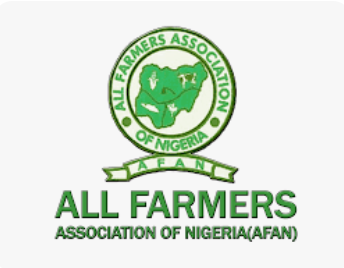Farmers in Nigeria, represented by the All Farmers Association of Nigeria (AFAN), have raised urgent concerns about the impending threat of hunger in the country, calling for immediate government intervention. The association’s National President, Kabir Ibrahim, highlighted multiple factors contributing to the worsening agricultural crisis, including rampant food inflation, insufficient mechanization, obstacles in accessing credit and quality seeds, transportation issues, and the ongoing challenges posed by insecurity and natural disasters like flooding. Ibrahim’s emphasis on these interconnected issues showcases a comprehensive understanding of the multifaceted problems plaguing Nigeria’s food production capabilities.
The association warns that without swift and targeted governmental actions to address these pressing agricultural dilemmas, Nigeria faces the risk of severe food shortages, potentially leading to widespread hunger. Ibrahim outlined a range of necessary interventions, such as importing certain food items for limited periods and providing vital support to smallholder and small-scale farmers. However, he underscored the need for transparency and effectiveness in executing these strategies to ensure they result in meaningful reductions in food prices and improved system efficiency. This indicates a critical stance on ensuring that governmental initiatives do not become constrained by bureaucratic inefficiencies or corruption.
Weather patterns, particularly flooding anticipated in 2024, are further complicating Nigeria’s agricultural landscape. Ibrahim expressed concern that the usual seasonal decline in food prices during harvest periods might not occur as expected, as many farms have already been devastated by adverse weather. This situation signifies the urgent need for the government to enhance agribusiness operations, capitalizing on agreements like the African Continental Free Trade Area (AfCFTA) to create more stable and supportive environmental conditions for agriculture in Nigeria. By tapping into regional trade opportunities, the association believes that Nigeria can better position itself to meet internal food demands while stabilizing prices.
Ibrahim also called for greater incentives and access to affordable credit for both small and large-scale agribusiness players. Such measures are vital for elevating food production and distribution capacities, ultimately leading to a more resilient agricultural sector. The press on affordable financing demonstrates an understanding that economic barriers prevent farmers from adopting better technologies and practices, a core issue that hampers efficiency and productivity in the agricultural sector. The focus on supporting farmers directly reflects a long-term vision for sustainable agricultural development rather than merely relying on short-term fixes like food imports or palliatives.
Moreover, the emphasis on strengthening smallholder farmers—who play a crucial role as the backbone of Nigeria’s food production—underscores the essential need for policies that enhance their economic viability. Ibrahim’s call for strategic investments and supports that enable these farmers to receive fair value for their products indicates a shift towards empowering individuals who are key to food security. By fostering a more equitable agricultural environment, the potential exists not only to elevate production levels but also to build more resilient communities that are better equipped to cope with future crises.
In conclusion, Ibrahim articulated a clear message to both governmental leaders and farmers alike: proactive and strategic action is necessary to avert potential hunger crises in Nigeria. The AFAN’s appeal transcends mere warnings; it serves as a call to action for a collective reevaluation of agricultural strategies aimed at achieving food sufficiency. This includes enhancing efficiency in food distribution, bolstering supports for smallholder farmers, and creating a cohesive agribusiness ecosystem that prioritizes sustainability. Ultimately, the survival and prosperity of Nigeria’s agricultural landscape hinge on the government and farmers working together to create a more viable and capable food production system.














